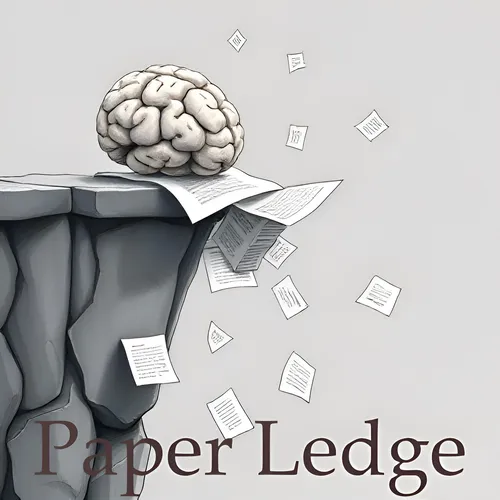Digital Libraries - A Systematic Literature Review of Retrieval-Augmented Generation Techniques, Metrics, and Challenges
- Author
- ernestasposkus
- Published
- Mon 11 Aug 2025
- Episode Link
- https://www.paperledge.com/e/digital-libraries-a-systematic-literature-review-of-retrieval-augmented-generation-techniques-metrics-and-challenges/
Hey PaperLedge crew, Ernis here, ready to dive into some fascinating research! Today, we're tackling a systematic review, which is basically like a super-thorough investigation, of something called Retrieval-Augmented Generation, or RAG for short. Think of it as giving AI a really good open-book test.
This review looks at 128 of the most influential papers published between 2020 and May 2025. The researchers didn't just Google it; they dug deep into places like ACM Digital Library, IEEE Xplore, Scopus, ScienceDirect, and DBLP – the heavy hitters of the academic world. They were very careful about which papers to include, focusing on the ones that are getting cited a lot by other researchers. They even made an adjustment for newer papers in 2025, knowing they haven't had as much time to rack up citations.
So, what exactly is RAG? Well, imagine you’re writing a report. You could rely entirely on your memory (that's like a standard AI model), or you could do some research and then write the report. RAG is like the second option. It combines two things:
- A neural retriever, which is like a super-fast search engine that can find relevant information. Think of it as your research assistant, quickly pulling up exactly the documents you need.
- A generative language model, which is the part that actually writes the text. This is like you, taking the information and crafting it into a coherent report.
The cool thing about RAG is that it allows AI to draw on a vast, up-to-date knowledge base – what the paper calls "non-parametric memory." So, the AI isn't just limited to what it was trained on; it can access new information in real-time. This is especially helpful for tasks where accuracy and currency are key! But, importantly, it still uses its training to understand the data being retrieved. It's not just spitting out random facts.
The researchers followed a strict process called PRISMA 2020, which is a guide for doing these types of reviews. They basically:
- Clearly defined what studies they would and wouldn't include.
- Made a detailed list of the datasets, architectures, and how the RAG systems are evaluated.
- Looked at all the evidence to see how well RAG works and where it falls short.
Essentially, this paper gives us a clear picture of where RAG research stands right now. It points out gaps in our knowledge and suggests where future research should focus. It's like a roadmap for the future of AI!
So, why should you care about RAG? Well:
- For students and researchers: This paper provides a fantastic overview of the RAG landscape, saving you tons of time digging through individual papers.
- For developers: It highlights the strengths and weaknesses of different RAG approaches, helping you build better AI systems.
- For anyone interested in AI: It shows how AI is evolving to become more accurate, reliable, and adaptable.
"RAG couples a neural retriever with a generative language model, grounding output in up-to-date, non-parametric memory while retaining the semantic generalisation stored in model weights."
That might sound like jargon, but remember, it just means RAG lets AI combine information from the web with its pre-existing knowledge, making it better at answering questions and creating content!
Here are a couple of things this paper made me think about:
- How can we ensure the information RAG retrieves is accurate and unbiased? What if the "research assistant" is bringing back misinformation?
- As RAG becomes more sophisticated, will it eventually replace the need for humans to do research and writing altogether? Or will it simply become a powerful tool that helps us do our jobs better?
What do you think, PaperLedge crew? Let me know your thoughts, and we can explore this further!
Credit to Paper authors: Andrew Brown, Muhammad Roman, Barry Devereux
